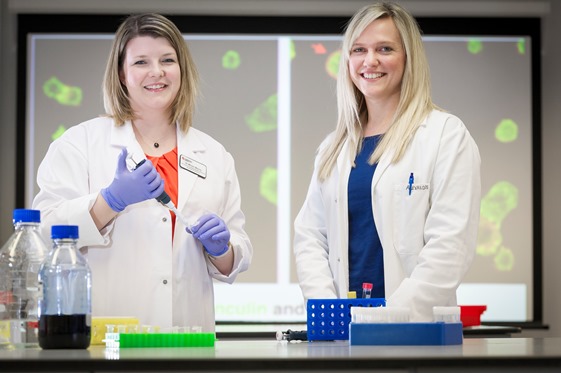Scientists at De Montfort University Leicester (DMU) have made a breakthrough in understanding the spread of head and neck cancer.

A team led by Dr Mhairi Morris, senior lecturer in Biomedical Science at DMU, has discovered the way in which cancerous cells become more mobile in the body, by creating a ‘track’ to move around on from a type of protein.
Dr Morris believes the findings hold the key to blocking the progression of certain cancers, ultimately improving patient survival rates.
She is now seeking funding to develop her research – which was carried out with the universities of Birmingham, Warwick and Malaya - and look at ways in which the spread could be arrested, or at least slowed down.
Dr Morris said: “This is an exciting discovery because in order to stop cancer cells spreading, we need to first of all know how they spread.”
Around 90 to 95% of people around the world carry within them a common virus called the Epstein-Barr Virus (EBV) but for most of these people, it lies dormant and symptomless.
In certain regions, such as Southeast Asia, North Africa and Greenland, and under the right conditions, infection with EBV carries a higher than average risk of developing certain cancers, including Burkitt’s lymphoma, Hodgkin’s lymphoma, nasopharyngeal carcinoma (a type of head and neck cancer) and some gastric cancers.
One of the genes expressed by the virus – called an oncogene – can cause cells to become cancerous. Dr Morris’ research has shown how these cancerous cells break the strong bonds with other neighbouring cells and create a protein track on which they can move around the body, spreading cancer.
Dr Morris said: “It’s like the scene in The Wrong Trousers, where Gromit is on the model railway and grabs pieces of track from a box, laying a path out in front of him as he goes.
“Now we understand how this process works, we can begin to look at how it can be slowed or stopped entirely.”
Posted on Friday 25 March 2016